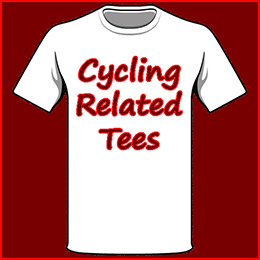Art, and the Artist’s Ego
 Mon, May 5, 2014
Mon, May 5, 2014 I had an interesting discussion the other day. I stated that without the artist’s ego, there would be no art, and who would create anything if they thought no one would look at it?
There was immediate disagreement and counter argument that the joy is in creating itself. And if the artist creates what others like rather that what he likes then is it really art? I don’t entirely disagree with either of these statements.
I am very much aware of artists who go “commercial,” and create what is popular with the masses. I see that every day in crap TV programs, movies and music. I appreciate when artists create what they believe in. Without a pioneer spirit nothing new would be created.
However, the original statement was concerned with the artist’s ego and one has to look closely at the word “Ego.” We are often taught that to have an ego is a bad thing, but I look at the dictionary definition and it means “Self-esteem,” a person’s sense of worth.
On the other hand there is the word “Egotist,” which means “Self Centered,” is definitely not a good thing. Initially, artists create for their own gratification, the joy of looking at what they have done.
Does this joy not come from the boost to their self-esteem or ego? Who does not step back and look at their work and say to themselves, “Look at what I have done here, I am a pretty cleaver fellow.”
There comes a point however, where one must move on from this self-gratification and seek validation from others. This validation may not be immediately forthcoming, and this is where it is important for the artist to continue with what he truly believes in.
This is not always easy for the performing artist, musician, singer/songwriter, actor or comedian. By nature of their art, they must have an audience, validation from others. And ultimately so must every other artist, be they painter, sculptor, or writer. What would be to point in my writing here, if no one read it?
The artist always treads a fine line between pleasing themselves and pleasing others. Sometimes originality is so original that no one but the artist understands. They can carry on, hoping their audience will eventually “Get it.” Or they can tweak their art so others do understand and see value in it, without completely “Selling out.”
There are many people who create for no other reason than their own relaxation. They draw or paint, or write in private journals with no intention of sharing. No one is obligated to share what they create.
However, just as the old question, does a tree falling in a forest make a sound if there is no one there to hear it? If an artist creates something and no one else sees it, is it really art?
And is it not the validation of an artist’s work by others, and especially input from his peers that enables an artist to grow, and create even better things?
What are your views?
 Dave Moulton | Comments Off |
Dave Moulton | Comments Off | 

















Reader Comments (5)
As far as I know, most great art was created despite of what "the public" thought about it at the time. An inflated ego is needed to produce art that contradicts the public opinion. Art that evolves.
Copycats have never made any worthwhile pieces of art. I will thus claim that the conclusions you make are incorrect.
Is a creative work, that has been made to fulfill rules set by other people, truly a creative work?
As sound is defined as a pressure wave through a solid , liquid or gas that has a frequency in the audible range, there is no necessity for a hearer. Likewise art has no need for an observor.
When I was in art school, one teacher explained it this way: when an artist creates, their work is art (with a small "a"). If that art evokes a response from a viewer, then that work becomes Art (with a capital "A").
Art for art's sake.
It's worth remembering that art need not be pleasant or pleasing. Art intending to evoke feelings of disturbance or disconnectedness could be argued more readily to require an audience.
In a musical context, mood can be created by the music. The experience of playing that music is not the same the mood it creates. If the music is art, then it is a different art for the performer than it is for the audience.